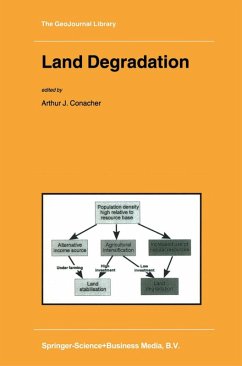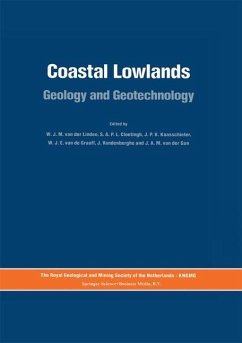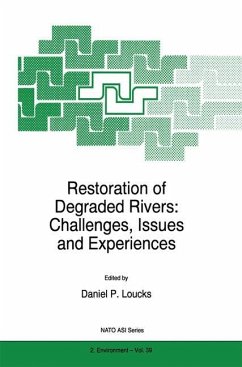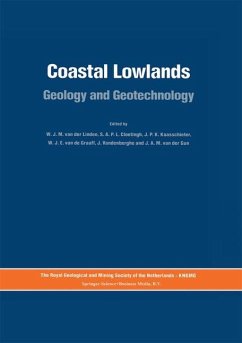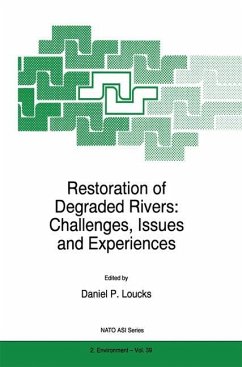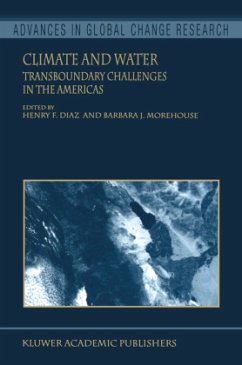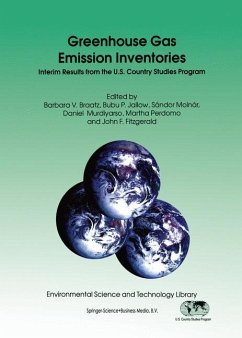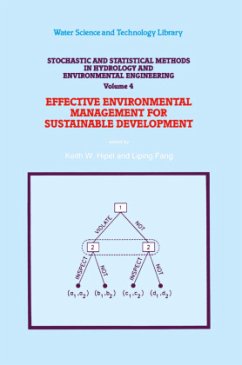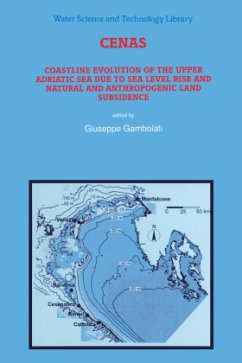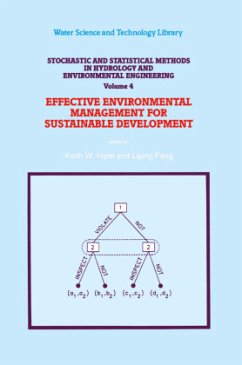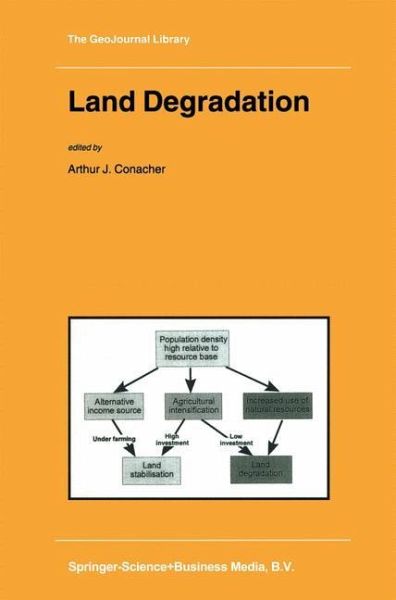
Land Degradation
Versandkostenfrei!
Versandfertig in 6-10 Tagen
113,99 €
inkl. MwSt.

PAYBACK Punkte
57 °P sammeln!
This book contains selected contributions from the Sixth Meeting of the International Geographical Union's Commission on Land Degradation and Desertification, held in Perth, Australia, in September 1999. Collectively, these contributions explicitly seek to understand not only the mechanisms responsible for the problem of land degradation but their social and economic implications, the means of overcoming the problems, and the policy instruments whereby remedial measures may be implemented. This breadth of approach is both distinctive and essential if the problems are to be tackled effectively....
This book contains selected contributions from the Sixth Meeting of the International Geographical Union's Commission on Land Degradation and Desertification, held in Perth, Australia, in September 1999. Collectively, these contributions explicitly seek to understand not only the mechanisms responsible for the problem of land degradation but their social and economic implications, the means of overcoming the problems, and the policy instruments whereby remedial measures may be implemented. This breadth of approach is both distinctive and essential if the problems are to be tackled effectively. The authorship comprises of specialists (mostly geographers) from universities, research organizations, and government agencies, who provide a truly international perspective with contributions from Iceland to Australia and from the USA to Japan.
Audience: The book presents current research findings which will be of particular benefit to professionals and practitioners, as well as researchers and tertiary-level educationalists who are involved with land degradation.
Audience: The book presents current research findings which will be of particular benefit to professionals and practitioners, as well as researchers and tertiary-level educationalists who are involved with land degradation.



